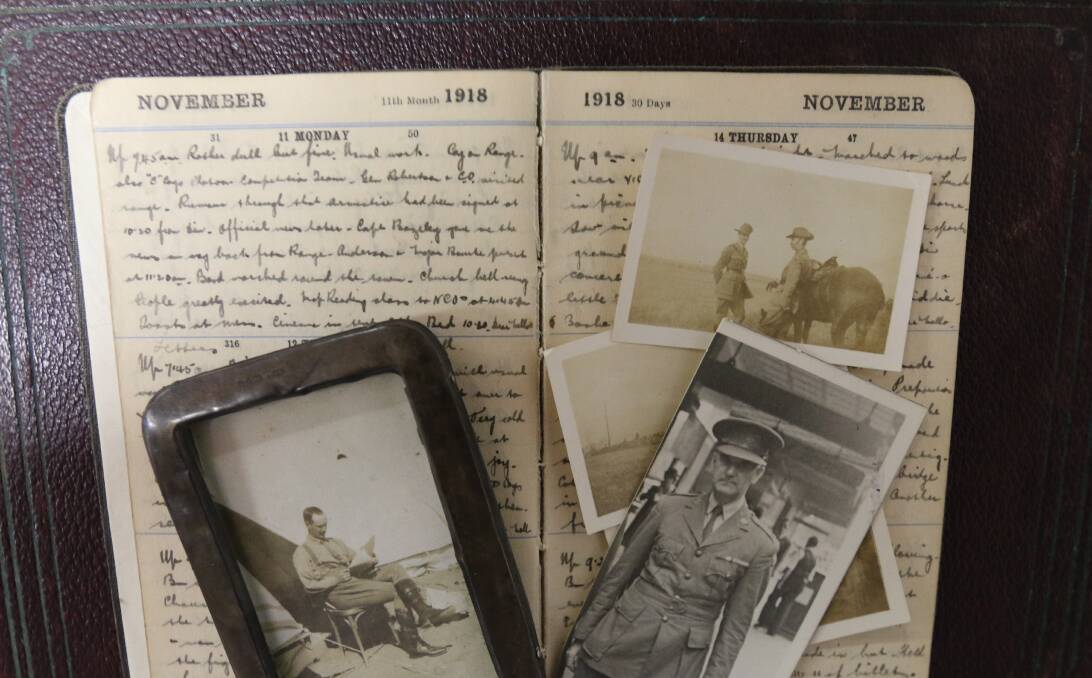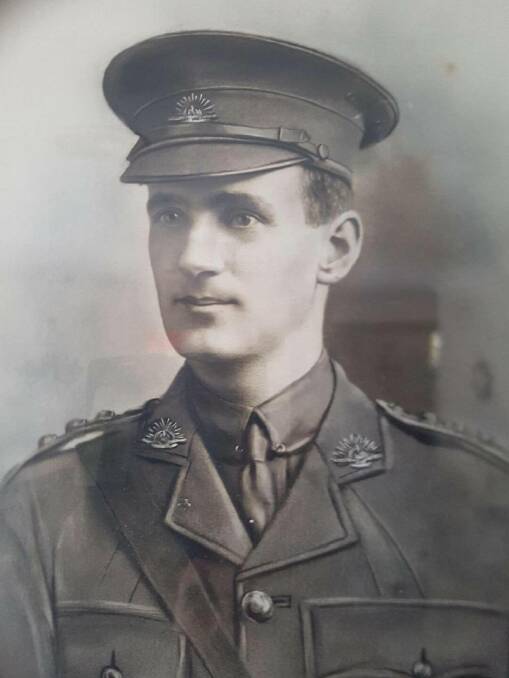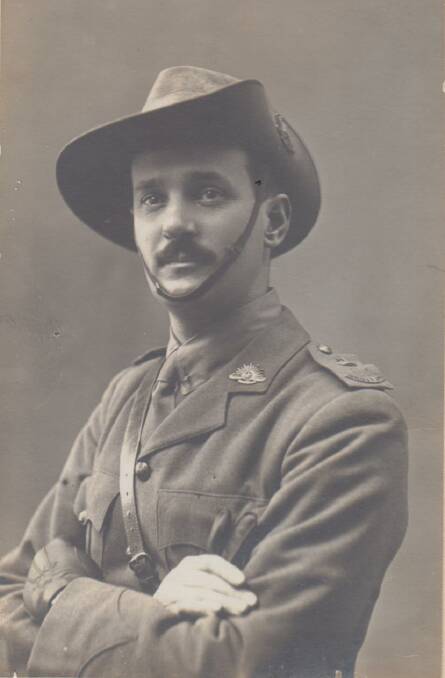
From moments of absolute horror to days of sheer boredom, the diaries of a local soldier have shed light on the terrifying reality that was WWI in the lead up to Anzac Day.
Subscribe now for unlimited access.
$0/
(min cost $0)
or signup to continue reading
According to his war record Major Leslie William Matthews was just 27 when he left home to fight in a war that claimed the lives of 60,000 Australians - a war he meticulously detailed in his diaries.
From searching the bloodied beaches of Gallipoli for his lost brother to finally hearing the much-hoped for news the war had ended pivotal moments in history are scrawled through the insides of the diaries – as witnessed by Major Matthews - making them a rare and sobering treasure.

“Arrived Anzac about midnight in barge,” he wrote on September 8. “Slept badly, couldn’t help thinking of Jack...no definite news...hopes of Jack being alright.”
Sadly, his brother Jack had been killed just a fortnight before.
On December 15 at Lone Pine he wrote it was “abnormally quiet on the front during day…be a relief to get away from shells, bombs etc for a while and to walk out in the open feeling safe.”
The diaries follow Major Matthews to the Western Front where he was wounded by a shell explosion in a dug-out in 1916.

Through accounts of “heavy shelling” and “vile trenches” filled with mud Major Matthews’ mind slipped often to one place.
“Thoughts of home and Nell,” he wrote often alongside accounts of burying his friends and shelling in the trenches, Nell was his wife of just five days before his enlistment.
On May 18, 1918 “We attacked at 2am...anxious moments...splendid success but there’s always a price to pay,” he wrote following a battle at Ville-Sur-Ancre where his bravery earned him a recommendation for a distinguished service order.
“His disregard of personal danger and his active leadership inspired all with whom he came in contact,” the recommendation read following his planning and devotion to duty under fire.
On November 11 Major Matthews wrote the day began as “rather dull but fine.”
Though this soon changed though as “rumour though that Armistice has been signed” swept through their ranks.
“Everywhere the French are wild with joy, Paris in fête,” he wrote the next day.
“Went to a dance arranged by C and D corps in hall...French people enjoying themselves.
“Funny to see our men dancing with girls.”
And then later “can hardly realise that the fighting is over. How soon for Aus and home, dear Nell how long to get back to you once more.”
Following his return home from to Australia in 1919 Major Matthews took up a soldier settler farm out at Tullibigeal where he and his Nell lived for 60 years.
According to his great niece the doctor had ordered he take up farming for his health, after his suffering a number of gassings while on the Western Front.


